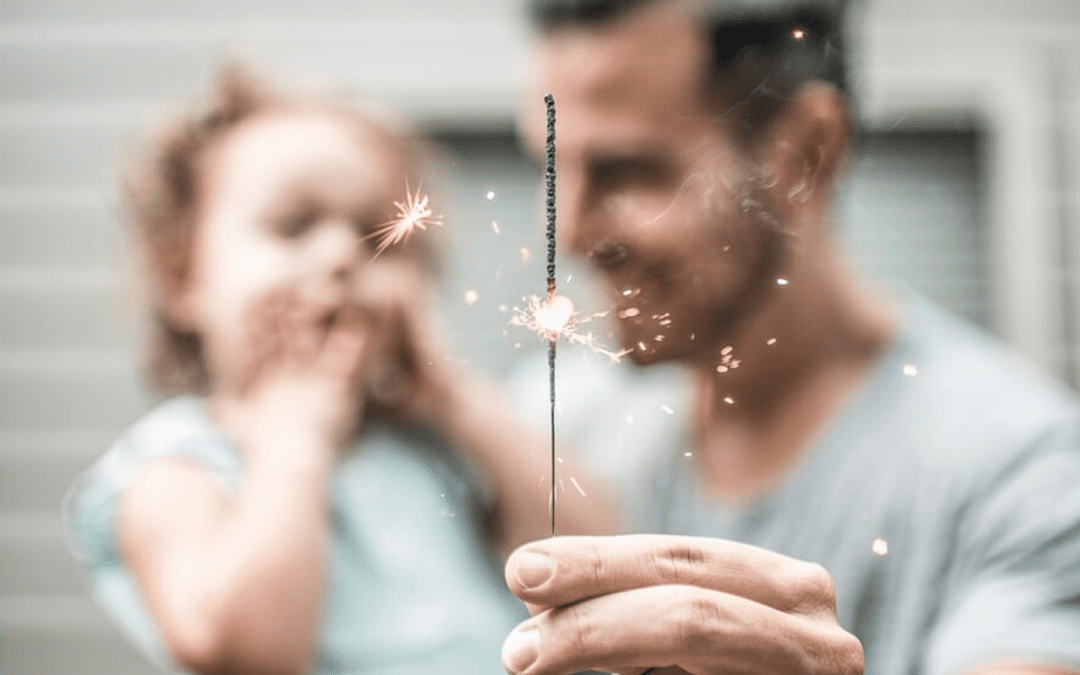Author: Carrie Cantwell
When I was in high school, my dad was diagnosed with bipolar disorder. He had always been like a pot of boiling water, lid vibrating, steam escaping, about to explode at any moment. He’d spend thousands of dollars on Rolex watches and high-end stereo equipment, then he’d lock himself in his bedroom for days. One minute, he’d affectionately tease me until I giggled; and then he’d angrily snap at me for no reason. His outbursts frightened me. I exhausted myself trying to make sense of his actions, always taking them personally. Growing up, I was the girl with daddy issues.
When I was in college, my mind started racing. I had a hard time sitting still. I had a full load of classes and a job. I threw myself into activist groups and went to parties every night of the week. I was constantly making new friends, and I slept with too many people to count. My thoughts jumped from one thing to the next. I swung back and forth at the mercy of my impulses. I jumped between relationships, apartments, jobs, even sexual identities. I felt like I was riding on a runaway locomotive going 120 miles an hour, with no sign of stopping. I knew something was wrong with me, yet I had no idea what it was.
In my early twenties, my mom left my dad because his behavior became increasingly erratic, and he was scaring her. My mom showed up at my job one day in April of 1998 to tell me my dad had died by suicide. I was numb until four years after his death, when I crashed, suffering my first major depressive episode. I cried for weeks. I became completely unable to function. I had to go on disability from work. That was when my mom sent me to a psychologist for an evaluation.
After a full day of testing, I was given a nine-page document. Laid out in black and white, there it was: I was diagnosed with bipolar disorder. I was horrified to learn I had the same disease that killed my dad. At that moment, a bipolar diagnosis felt like a death sentence. I was terrified.
With the help of my psychiatrist, I finally found a cocktail of medications that helped even out the intensity of my moods. As I began my recovery, with the help of my therapist, I finally began to understand my illness. When I emerged from the dark cloud in my head, I discovered a sense of self-confidence and bravery I’d never known before. I could survive this.
It’s ironic that it took my dad’s death for me to forgive him. It wasn’t until my reaction to his suicide that I was diagnosed bipolar. By accepting my bipolar diagnosis, I was able to make some sense of my dad’s actions, realizing they weren’t my fault or his. This epiphany led me to reconcile all the scary memories of my dad with my discoveries. My diagnosis taught me how to understand and forgive both my dad, and myself.
I’m both a survivor and an advocate. I am currently writing a book about my experiences entitled Daddy Issues: A Bipolar Memoir. I hope that by sharing my story, I can give hope to the millions of people whose lives have been affected by bipolar disorder and suicide.
I have bipolar, but it doesn’t have me. I’m a resilient person. I’ve made it through several major manic and depressive episodes, and I’ve come out on the other side. I’ve also captured a new kind of confidence—not the false, intoxicating delusions of a manic mind, but a real sense of being okay with myself.
I’m living proof that a bipolar diagnosis is not a death sentence. I haven’t just survived, I’ve thrived. I’ve obtained two Bachelor’s Degrees in English and Graphic Design. I’ve been interviewed on NPR’s “All Things Considered” and my artwork has been published in a college art school textbook and exhibited in national and international art museums. With more than 33 movie and television credits to my name, I’ve been working in the film industry for over 13 years, earning an Emmy nomination and an Art Director’s Guild award. I also have a blog where I share my stories about living with bipolar disorder: darknessandlight.org. I’m proud to say that I’m bipolar brave.
The content of the International Bipolar Foundation blogs is for informational purposes only. The content is not intended to be a substitute for professional medical advice, diagnosis, or treatment. Always seek the advice of your physician and never disregard professional medical advice because of something you have read in any IBPF content.


